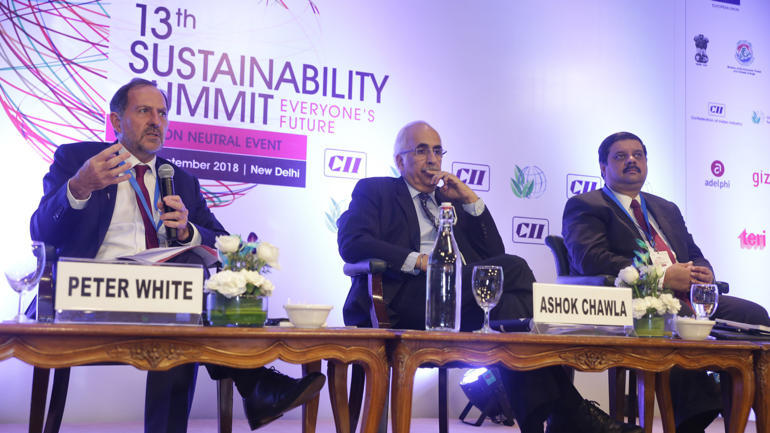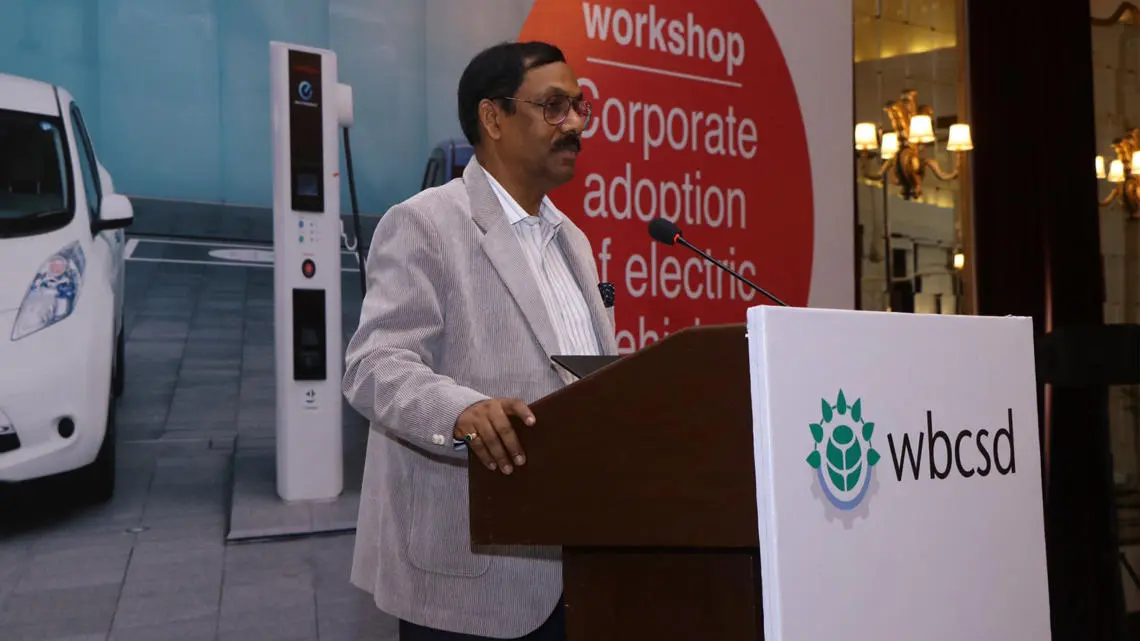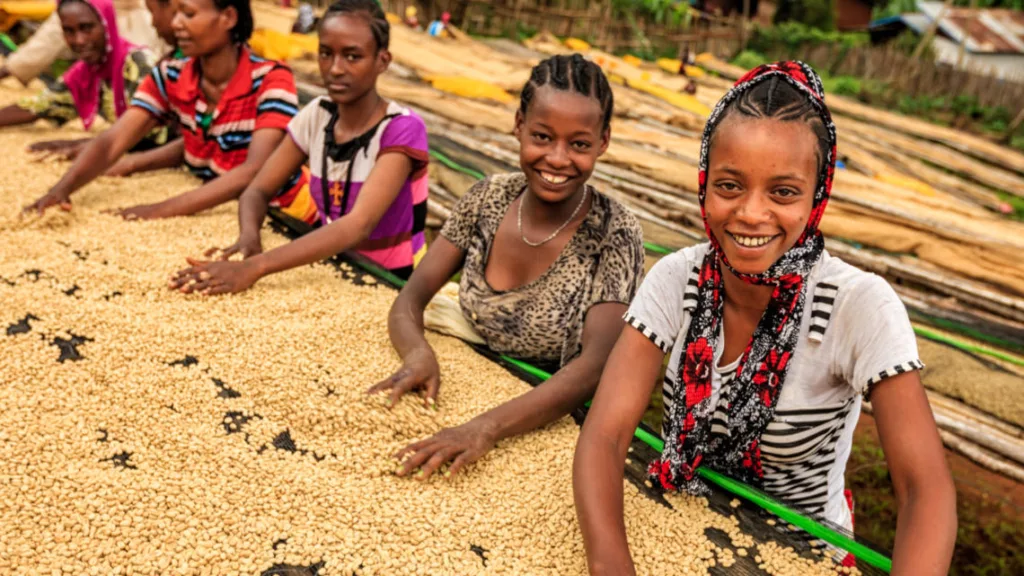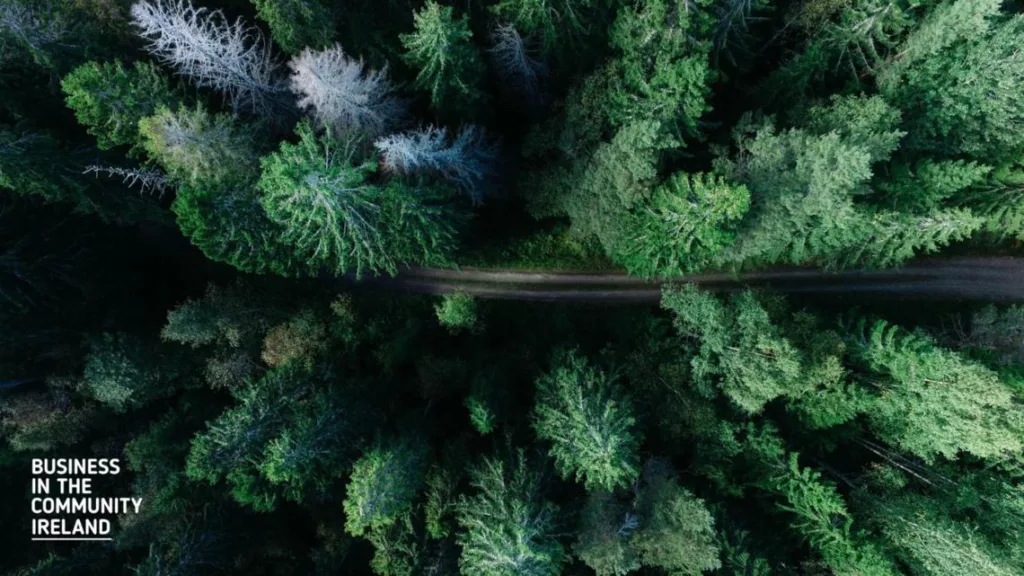Authors
Communications
This week saw two milestone events in Delhi, aimed at accelerating India’s sustainable development.
India holds one fifth of the world’s population, the planet’s fastest growing large economy and represents one quarter of all additional energy demand to 2040. Additionally, India must deliver up to half the progress required for achieving the SDGs. In other words, we all have a stake in India’s sustainable transition, it’s everyone’s future.
Sustainability Summit organized by CII-CESD
Everyone’s Future was the theme of the Sustainability Summit on 6 and 7 September, organized by the CII-ITC Centre of Excellence for Sustainable Development, WBCSD’s Global Network partner in India. Over the two days, more than 300 business executives and diplomats exchanged with leading thinkers from government and civil society.
There were business solutions and good practices shared. Sanjiv Puri, Managing Director of ITC, opened the event by discussing the Sustainable Development Goals, which he said was a framework for a new beginning to work towards sustainability, bringing all stakeholders together. He used ITC’s work to illustrate how this can be done in emerging markets.

Peter White, COO and Vice President, WBCSD, shared the Council’s work with the Committee of Sponsoring Organizations of the Treadway Commission (COSO) to provide guidance for bringing environmental, social and governance (ESG) information into formal business decision-making through enterprise risk management processes.
But the big takeaways for everyone at the summit were the learning experiences and the interest in forming partnerships to scale up circular economy solutions, especially for dealing with the plastics challenge.
Karmenu Vella, European Commissioner for Maritime Affairs and Fisheries, led the EU Circular Economy Mission to India which was (REMOVE) joined the CII summit. Throughout the two days he emphasized that the transition to a circular economy can create jobs, increase investments and add value to create sustainable economy.
Speaking on a panel on responsible investments in circular economy, WBCSD’s Esha Sar highlighted the tightening standards for incineration of waste, and the gaps in both the funding of, and pipeline for, investable projects in waste infrastructure.
WBCSD India Day
Prior to the CII Summit, WBCSD organized its “India Day.” The goal was to get Indian member companies’ input into the strategy for a number of WBCSD projects, and to accelerate the WBCSD projects that are active in India.
In the engaging morning session, “Business strategies for managing climate risks through adaptation, and scaling impact through policy,” Indian representatives from WBCSD’s membership and from wider civil society organizations discussed how to successfully advance climate adaptation for sustainable development.
Participants identified the motivations for business to get more engaged on issues of climate adaptation and resilience strategies. Aditya Birla Group shared examples on scenario planning; Tata Chemicals discussed location-based risk assessments; and ITC focused on building resilient agri-supply chains. WBCSD members identified that especially strong partnerships across sectors and ecosystems, and with local and national governments, will unlock the adaptation potential and benefits for the private sector and society.
Simultaneously WBCSD held a strategy workshop on water smart agriculture, as part of the global Climate Smart Agriculture project. The priorities identified for action through WBCSD India were on soil health, identifying a sustainable “Farm of the Future,” and scaling up solutions for sustainable rice landscapes.
An Electric Vehicle Masterclass was held by WBCSD’s REmobility project, to demystify procurement of EVs for commercial and industrial customers and bust commonly held myths. India’s transition to electric vehicles will be much faster than anyone anticipates, said Dr Anil Srivastava, Director General – DMEO & Adviser (Infrastructure Connectivity), Niti Ayog. The WBCSD masterclass was held as part of the Government of India Move Global Mobility Summit.
The WBCSD Water Leadership Group also met for the first time in its new format, where it combines those members engaged in India and those engaged with WBCSD outside of India.
This is the first time a global WBCSD program area will be led from India. The members welcomed the new Water Director Tom Williams, who will be based in Delhi. Decisions were taken on the strategy to broaden action on water beyond India, and next steps for the WBCSD Pledge for Access to Safe Water, Sanitation and Hygiene (WASH).
In all, over 100 people from 45 companies and 10 partner organizations took part in the WBCSD India Day, which will be held again in 2019.
WBCSD news articles and insights may be republished in accordance with the Creative Commons Attribution-NonCommercial-NoDerivatives 4.0 International Public License, and in accordance with our Privacy Policy. All Content must be featured with due credits.
Outline



